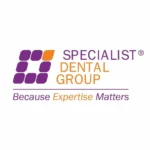Article reviewed by:
Dr Tan Kian Meng • Prosthodontist
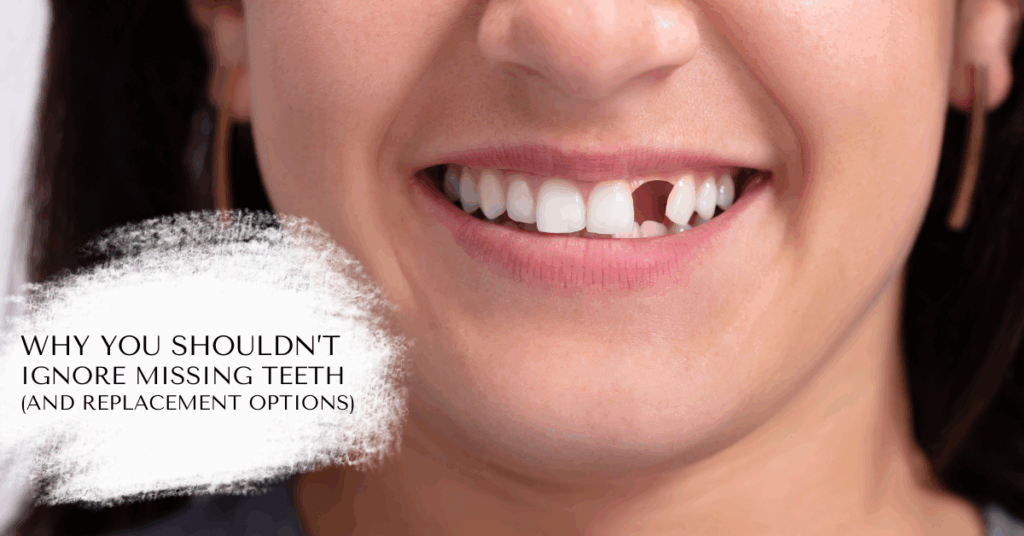
Losing a tooth is more common than many people think. In fact, studies suggest that by the age of 50, the average American has lost at least 12 teeth due to decay, gum disease, or trauma. Locally, according to Singapore’s 2019 National Adult Oral Health Survey, while only 2.7% of adults are completely edentulous (toothless), over one-third have untreated cavities, and more than half suffer moderate-to-severe gum disease. Both of these conditions are the top causes of tooth loss.
Table of Contents
Why Do People Lose Teeth?
Though it is commonly believed that tooth loss becomes common as one ages, it is not due to age itself, but rather, the following reasons:
- Severe tooth decay – when cavities go untreated and destroy too much of the tooth, leaving extraction as the only treatment option.
- Advanced gum disease (periodontitis) – the leading cause of adult tooth loss, where the supporting bone and tissues weaken, causing teeth to become loose.
- Trauma or accidents – sports injuries or accidents can dislodge teeth.
- Failed dental treatment – sometimes root canal-treated teeth or crowns fail if there are cracks or infections.
- Genetic factors – in some rare cases, people are born with congenitally missing teeth.
Regardless of the reason, the reality is that an untreated missing tooth can have far-reaching effects — not only on your smile, but also on your overall health and quality of life.
Hence, the next big question is, why shouldn’t you ignore missing teeth? Here’s why.
What Happens If You Don’t Replace a Missing Tooth?
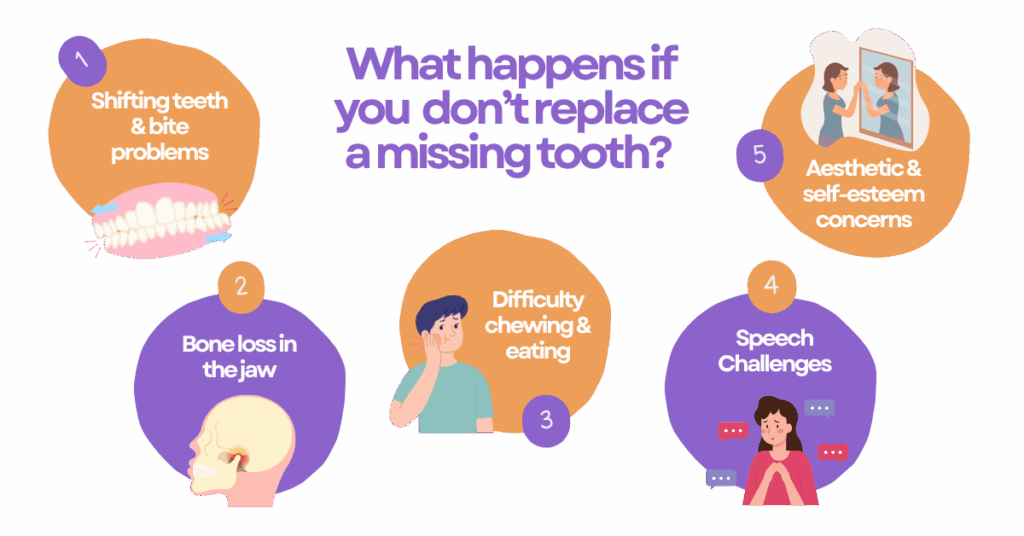
If the missing tooth isn’t easily noticeable, it may be tempting to think it won’t have much impact. However, over time, that gap can cause significant issues.
- Shifting Teeth & Bite Problems
Teeth are like books on a shelf. When one is missing, the others start to tip or shift. This can create spaces, crowding, or misalignment, which may affect chewing and even lead to other dysfunctions (e.g. TMJ disorders). - Bone Loss in the Jaw
The jawbone stays strong through the pressure and stimulation provided by chewing on natural tooth roots. When a tooth is missing, that area of bone gradually begins to deteriorate. Over time, this can lead to facial sagging, making you look older than you are. - Difficulty Chewing & Eating
Missing teeth can make it harder to enjoy your favourite foods, like biting into an apple or chewing steak. People often end up favouring one side of their teeth, which can strain the jaw or cause uneven wear on the remaining teeth. - Speech Challenges
Teeth help shape sounds. Losing certain teeth, especially front teeth, can affect how clearly you pronounce words. It may affect one’s confidence when interacting with others, whether socially or professionally. - Aesthetic & Self-Esteem Concerns
A visible tooth gap can impact confidence, making people reluctant to smile, laugh, or even take photos. Some patients have shared that this emotional toll was just as impactful as the physical one.
Options for Replacing Missing Teeth
Thankfully, today’s dental care provides many reliable options to bring back both function and appearance. Each solution comes with its own advantages and considerations, depending on your dental condition, budget, and lifestyle.
Among the various solutions, dental implants are widely regarded as the most advanced and long-lasting solution available today.
1. Dental Implants
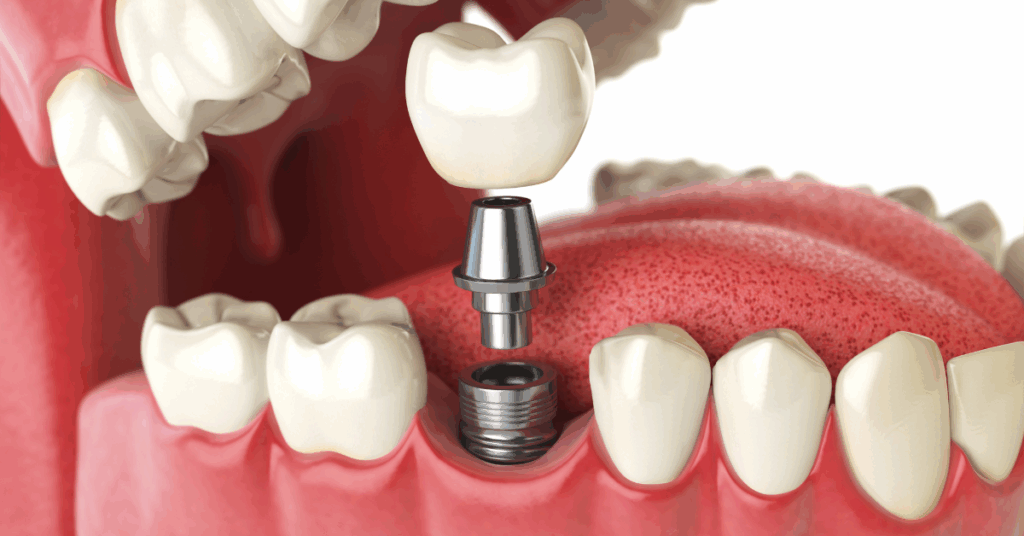
A dental implant is a small titanium fixture that is surgically placed into the jawbone, acting as an artificial tooth root. Once healed, a custom-made crown is attached to the implant, completing the restoration.
- Benefits: Dental implants not only look and feel like natural teeth, but they also prevent bone loss in the jaw. It also has no impact on adjacent teeth (unlike bridges).
- Considerations: Dental implants are ideal for replacing a single tooth or multiple implants to support bridges/dentures, which can replace more than one missing tooth.
To find out more in-depth information on dental implants, read our Comprehensive Guide to Dental Implants.
2. Dental Bridges
A dental bridge literally “bridges” the gap by anchoring to the teeth held in place by one’s own natural teeth or dental implants.
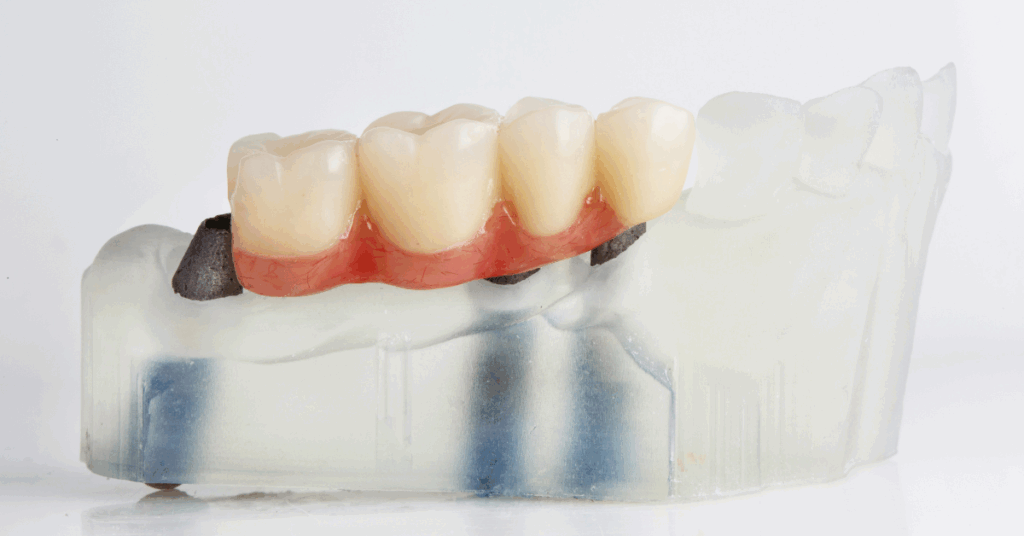
- Benefits: Faster than implants, usually completed within weeks, making it a good option if implants aren’t possible.
- Considerations: Requires grinding down healthy adjacent teeth for support, does not prevent bone loss. The successful placement of a bridge depends on having two adjacent teeth in good condition to provide stability.
3. Dentures
Removable appliances that replace multiple missing teeth. It can be partial (for a few missing teeth) or complete (when all teeth are missing).
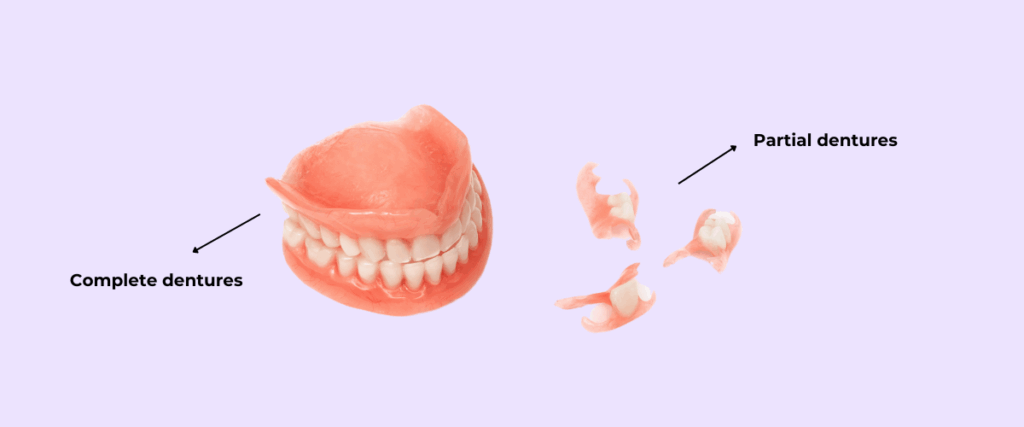
- Benefits: Cost-effective, non-surgical, can restore function and appearance.
- Considerations: May feel less stable, require adjustment over time, and may result in bone loss under dentures.
Emotional and Health Benefits of Tooth Replacement
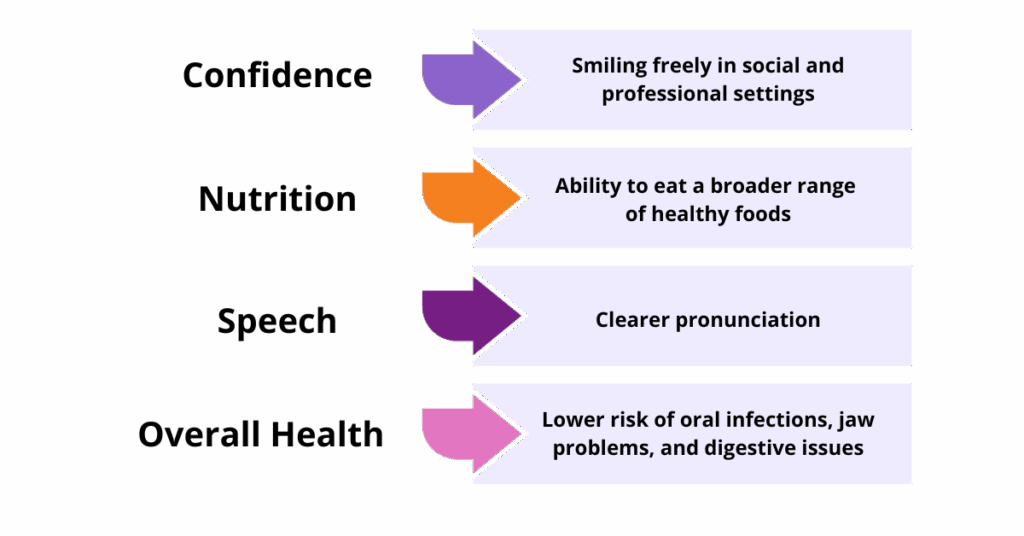
Replacing missing teeth is not just about eating and aesthetics. Individuals often see improvements in their confidence, nutrition, speech and overall health.
Final Thoughts
Missing teeth may seem like just an inconvenience, but they can trigger larger oral and health problems if left untreated. At Specialist Dental Group, our internationally qualified team of dental specialists has extensive experience in helping restore smiles with dental implants, bridges, or dentures.
If you’ve lost a tooth, don’t wait. The earlier you seek help, the more treatment options will be available, and the better your long-term results will be.
Replacing a missing tooth isn’t just about restoring your smile; it is about restoring your confidence, oral function, and health.
It’s never too late to prioritise your oral health. Consult a dental specialist today and take the first step toward a stronger, healthier smile.
Drop us a text via the WhatsApp icon on the bottom right corner, enquire or call us at (65) 6733 7883.
